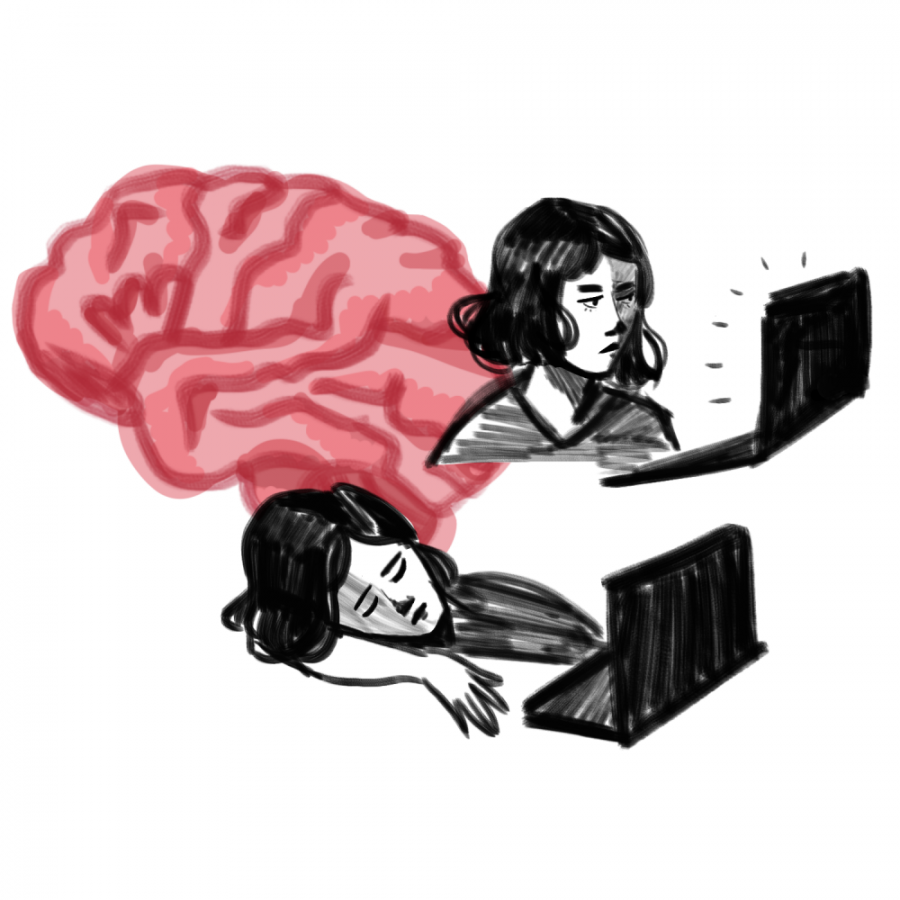Brain Block
The distinct and uncomfortable inability to write
The document in which I typed this article sat empty in my drive for two months. By Week 3 it was renamed to a less official sounding jumble of random letters. I would try to open my drive and other necessary document as fast as humanly possible to avoid the guilt of seeing an empty page. Come Week 7, it was stowed away in an old folder, so I didn’t have to see it every time I opened my computer.
Writer’s block is the universal student experience. Maybe you’ve mapped out all your ideas in your head, but just can’t seem to put it into words, or maybe it’s the blank page and confusing prompt that’s stopping up your creativity.
Of course, there could be a variety of outside factors influencing your flow of writing. If the assignment due is worth 60 percent of your final grade, putting the first word on the page will be that much more daunting.
It boils down to the fact that writer’s block is not only about diction but the process of creation.
In the nitty gritty neuroscience of it, the brain’s Broca’s area, associated with language semantics, would obviously be up and kicking during writing. But what about the actual process of creation?
In a study conducted by the University of Bristol, participants were asked to create a story around a prompt. Brain scans of the writers showed the expected activity increase in Broca’s area, but also an increase in the right prefrontal cortex, a region responsible for skills like making associations.
A similar study concluded that the typical writing process was activated by neural regions of verbal memory and connection, while brainstorming relied heavily on areas related to control and planning.
Since writing requires intense brain activity, it’s no wonder we struggle with those essay intros and conclusions.
So how can we overcome this obstacle?
Believe it or not, making connections in writing actually requires stored information. A step to prevent writer’s block, then, would be to expand your reading and experiences. That interesting fact you read the other day could be the introduction to your next English essay. The art class from last semester might help you write a history analysis. The more information stored away, the more information there is to fall back on.
But no matter the science behind it, the ultimate solution to writer’s block is to buckle down and write. Like everything else, engaging in the process of writing — brainstorming, drafting and editing — can only strengthen the necessary neural pathways.
When we get caught up in technicalities and reasons, we bury obligation under layers of defensive justifications. The science of writer’s block is fascinating but only creates another pretty excuse.
Rather than diving down a rabbit hole of neuroscience, maybe work on that assignment. Not to beat a dead horse, but at some point, it becomes quantity over quality. No matter how good the idea or how great your knowledge: zero times 100 is still zero.

